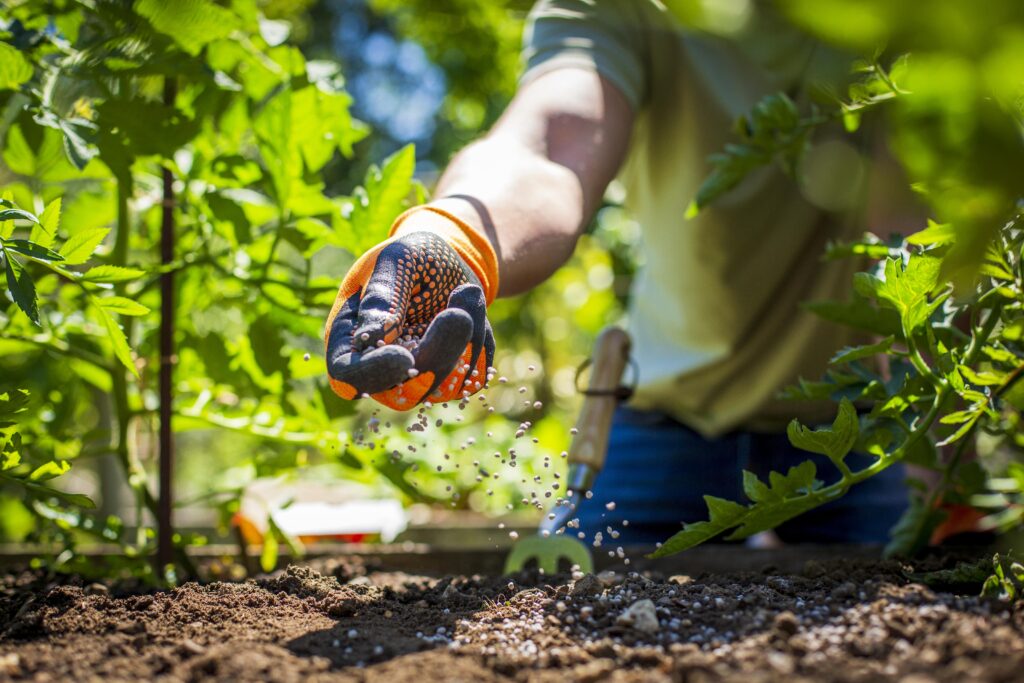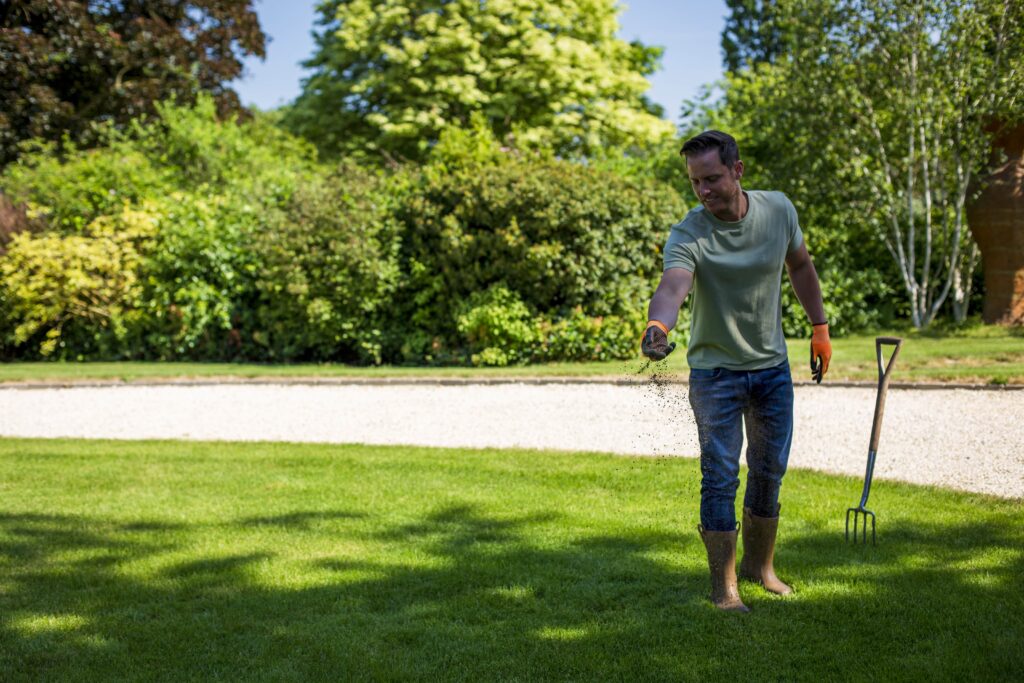
Why should you fertilise your soil?
A well-nourished soil is more alive. Its nutrient storage capacity is improved with amendments and fertilisers (also called plant food). Plants have access to all the nutrients they need and develop perfectly.
Plants draw nutrients from the soil in varying quantities depending on the species. Some plants, such as melons or tomatoes, are very greedy and exhaust the soil, while others have very specific nutrient needs. It is therefore interesting to apply natural fertilisers at the right time and by targeting the type of crop to give back to the earth what we took from it by harvesting fruits, vegetables and other flowers.
Over time, overexploited soil loses its ability to store nutrients. It becomes poor and plants do not thrive. They need more and more inputs (fertilisers, among others). Preservation of the soil’s ecosystem using soil assistance is essential.

Essential nutrients for a healthy plant
Three elements are essential for the good health of plants
- Nitrogen (N) which allows growth and is an essential element for leafy vegetables and plants grown for their foliage;
- Phosphorus (P), which ensures root formation and better resistance to diseases;
- Potassium (K), which is involved in the photosynthesis process, allows for more abundant flowering, production, and better resistance to cold.
Other elements, sometimes a little forgotten, are also very important because their deficiency can cause pathologies.
- Calcium, which is involved in the cell formation process.
- Copper, iron and magnesium which help in the formation of chlorophyll. An iron deficiency can cause a well-known disease: chlorosis, which causes leaf discoloration.
- Boron which helps the growth of stems and the formation of seeds;
- Zinc which allows the growth of plants and the synthesis of chlorophyll
These nutrients will get from the soil to the plant thanks to the roots. Therefore, you can add natural phosphate or other root stimulating products to optimise the journey of nutrients from soil to plant. Fertiliser/plant food that is applied as a liquid is faster acting, ,but a a granule will slowly release and work for longer.
Overall, fertilising your soil allows your plants to be healthier, more resistant, grow better, and produce more!
I